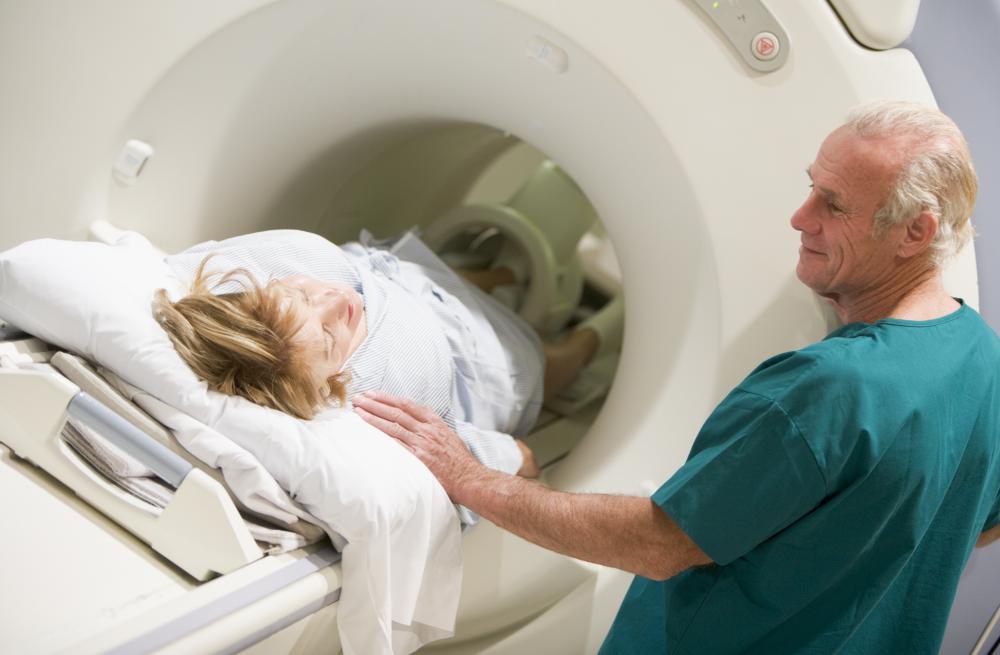At WiseGEEK, we're committed to delivering accurate, trustworthy information. Our expert-authored content is rigorously fact-checked and sourced from credible authorities. Discover how we uphold the highest standards in providing you with reliable knowledge.
What is Refractory Epilepsy?
Refractory epilepsy is a seizure disorder that resists drug treatment. There is some debate among clinicians and researchers about how to define refractory epilepsy. As a result, this term is used in a variety of ways, and when a patient's epilepsy is described as refractory, resistant, or nonresponsive, it can be advisable to ask for more detail about what the diagnosis means. This will help the patient understand the conclusions being drawn by a care provider.
Seizures are not uncommon in the general population. People may experience a single seizure once and never again, especially in early childhood. In other people, seizures develop into epilepsy, a disorder that has a number of forms. Epilepsy is classified by the types of seizures the person experiences and it can also be classified by how well it responds to treatment.

In some patients, seizures persist despite trying several antiepilepsy drugs. In these cases, the patient is said to have refractory epilepsy. Some clinicians apply this diagnosis when the patient experiences a single seizure relapse within a set time period. Others may diagnose a patient with refractory epilepsy if no noticeable differences can be seen on and off medications. If a patient experiences fewer seizures while on medications, the patient will not be viewed as a non-responder because he or she is actually responding, albeit imperfectly, to medications.

It is possible for a patient with refractory epilepsy to start responding to medications and improve. Conversely, patients doing well on medications may relapse and develop refractory epilepsy. Treatment of patients with epilepsy is complicated by noncompliance with drug regimens. A patient who does not take drugs as directed can experience seizures and if the patient is not honest about the noncompliance, the doctor may be led to believe that the patient has refractory epilepsy.

People with early onset of seizures, developmental delays, abnormal neurological exams, seizure clusters, and several rounds of seizures before treatment begins are at increased risk for refractory epilepsy. Patients with epilepsy that does not respond to pharmacological treatment may be candidates for treatments such as a ketogenic diet, epilepsy surgery, or vagus nerve stimulation. These treatments may be explored as possible options once it becomes evident that a patient is not responding to multiple antiepilepsy drugs. Usually such patients attend seizure clinics and receive treatment from an epilepsy specialist who can provide access to the latest research and treatment options.
AS FEATURED ON:
AS FEATURED ON:


















Discussion Comments
My 32 year old son has Lennox-Gastaut Syndrome which is non-controllable seizures (300-plus a day every day of his 32 years and 40 different kinds).
I take him to the Cleveland Clinic in Ohio and they are excellent with seizure care and help for you to cope. I give them 5 stars plus in their care. Give them a try, and I don't think you will be disappointed. He was not born with anything wrong with him. This was caused by a DTP at age five months. It's hard to watch him suffer but always know that God is in control. God bless.
@famnfriends--There are a lot of websites that have information for you and your co-worker. If you do a search for "epilepsy foundation of" (state where you live), you will find many places that can offer help. Good luck and I hope this helps.
This is great information, thanks! My co-worker has recently been diagnosed with refractory epilepsy. She is in her early 50s and does not have a history of seizures so this has been scary for all of us. Can anyone tell me where we can get some help and support on how to help her live with this condition?
Post your comments